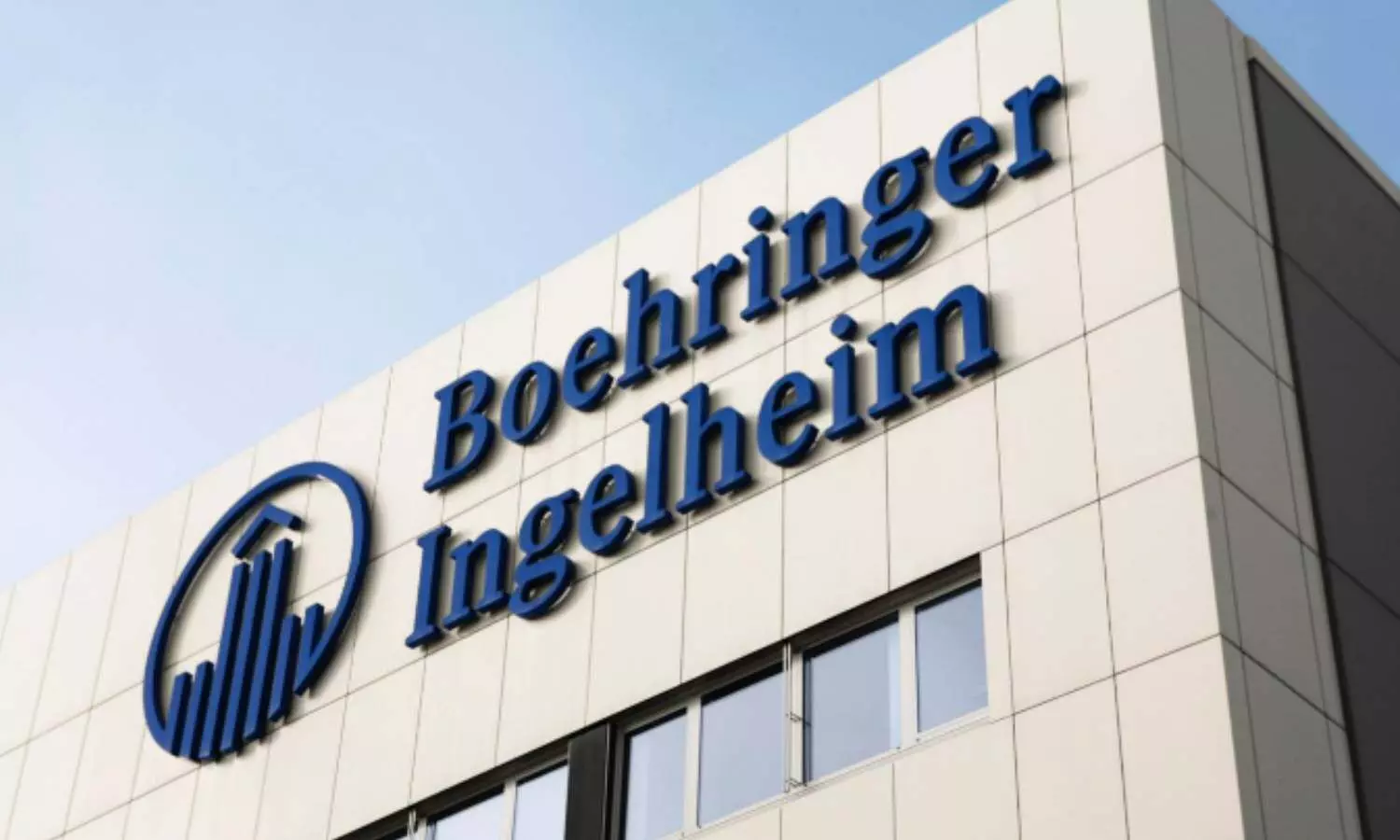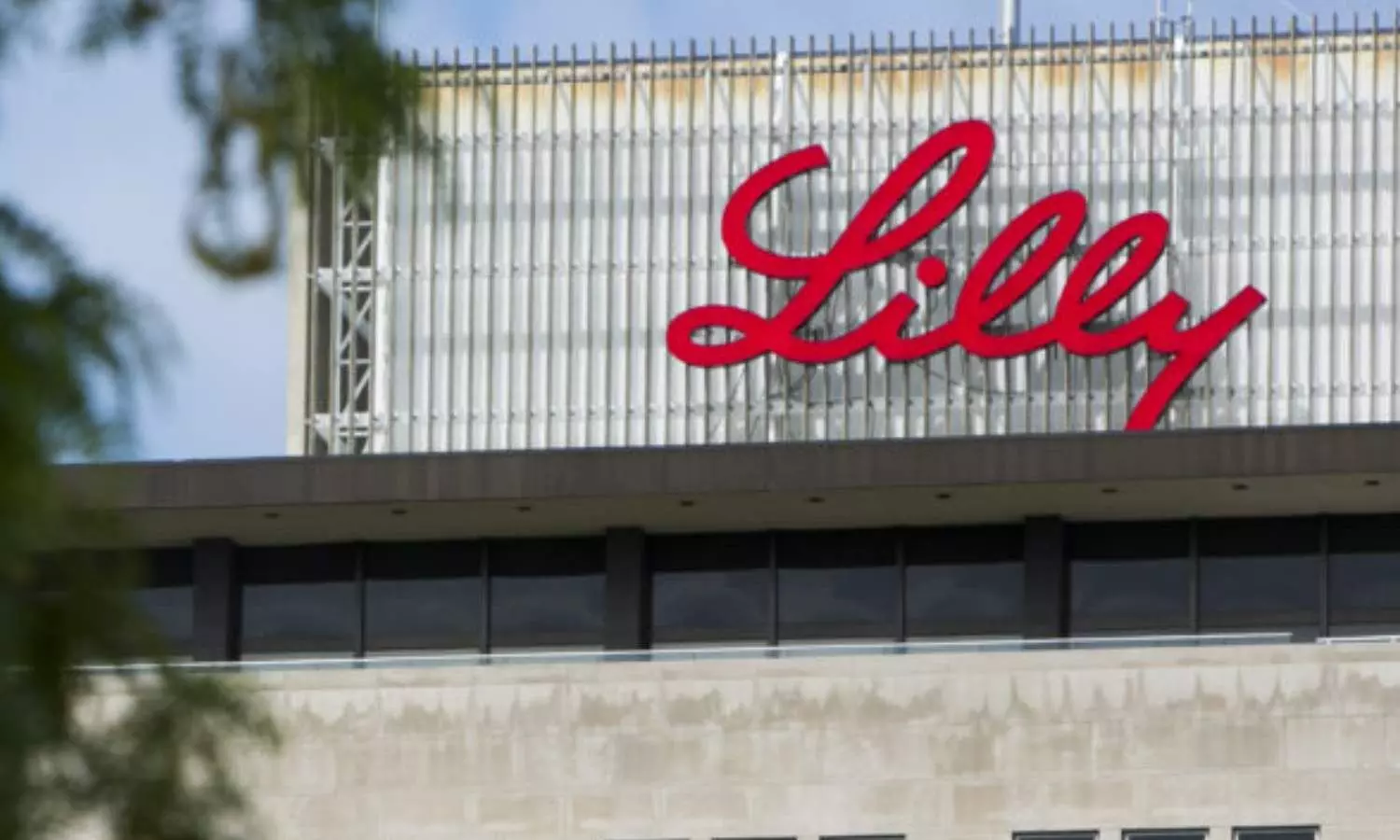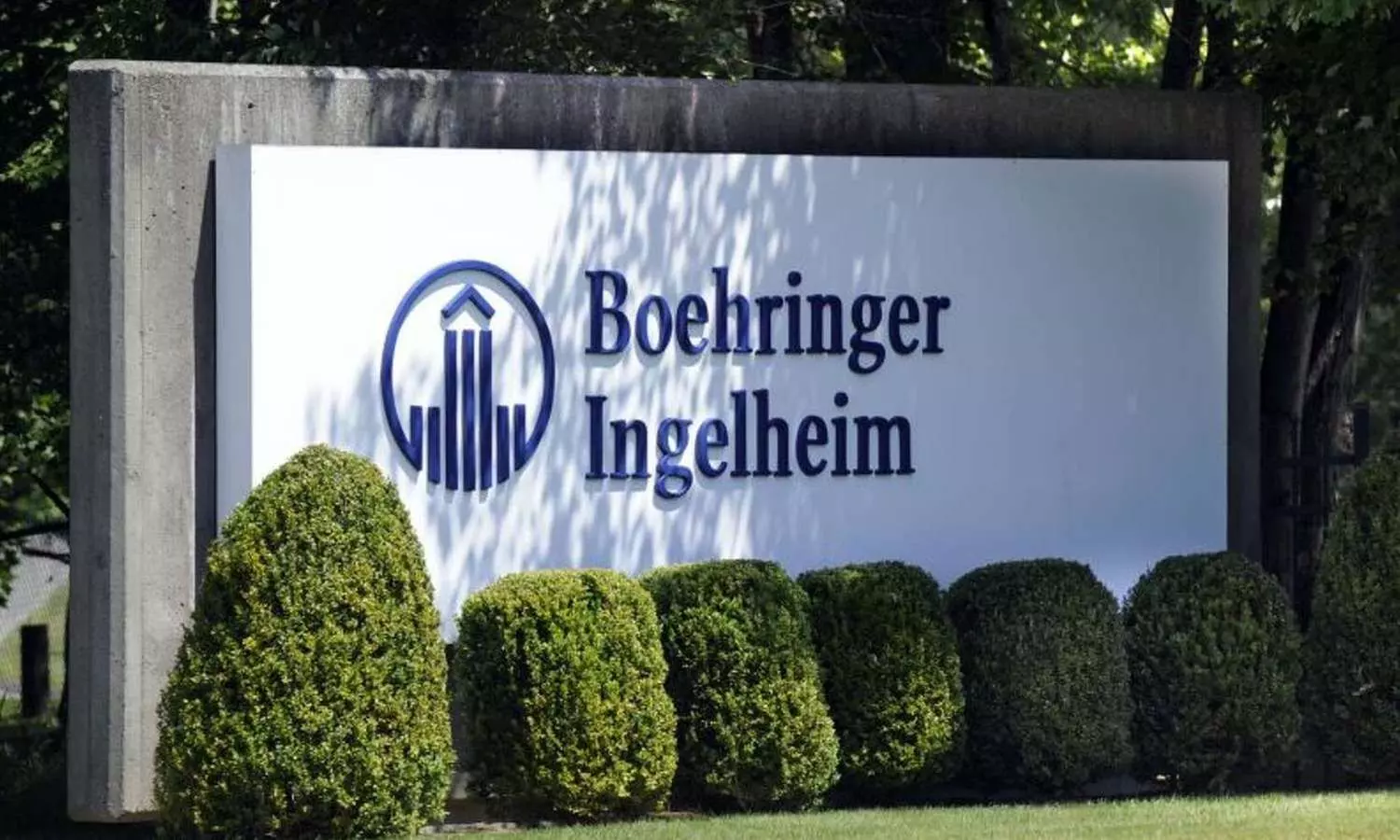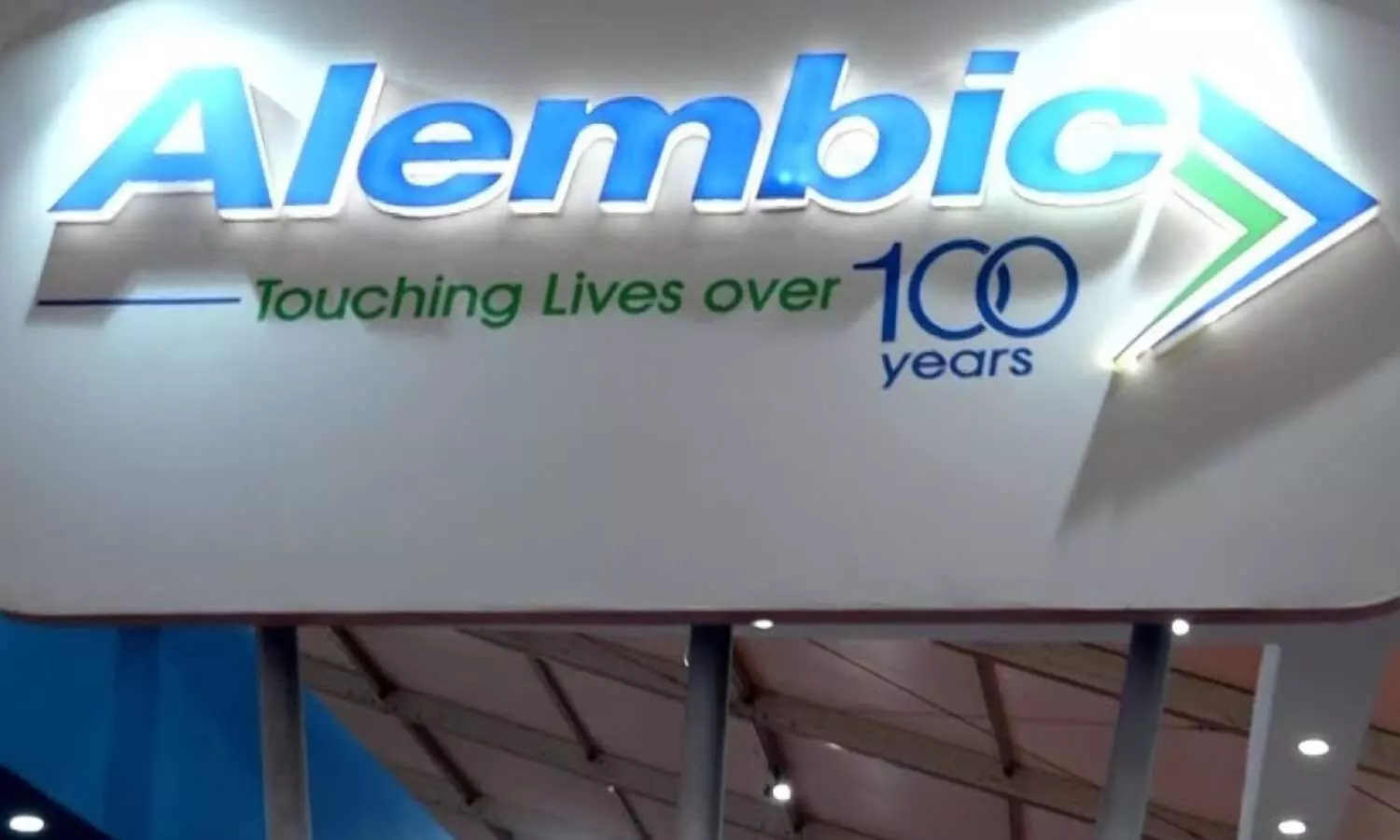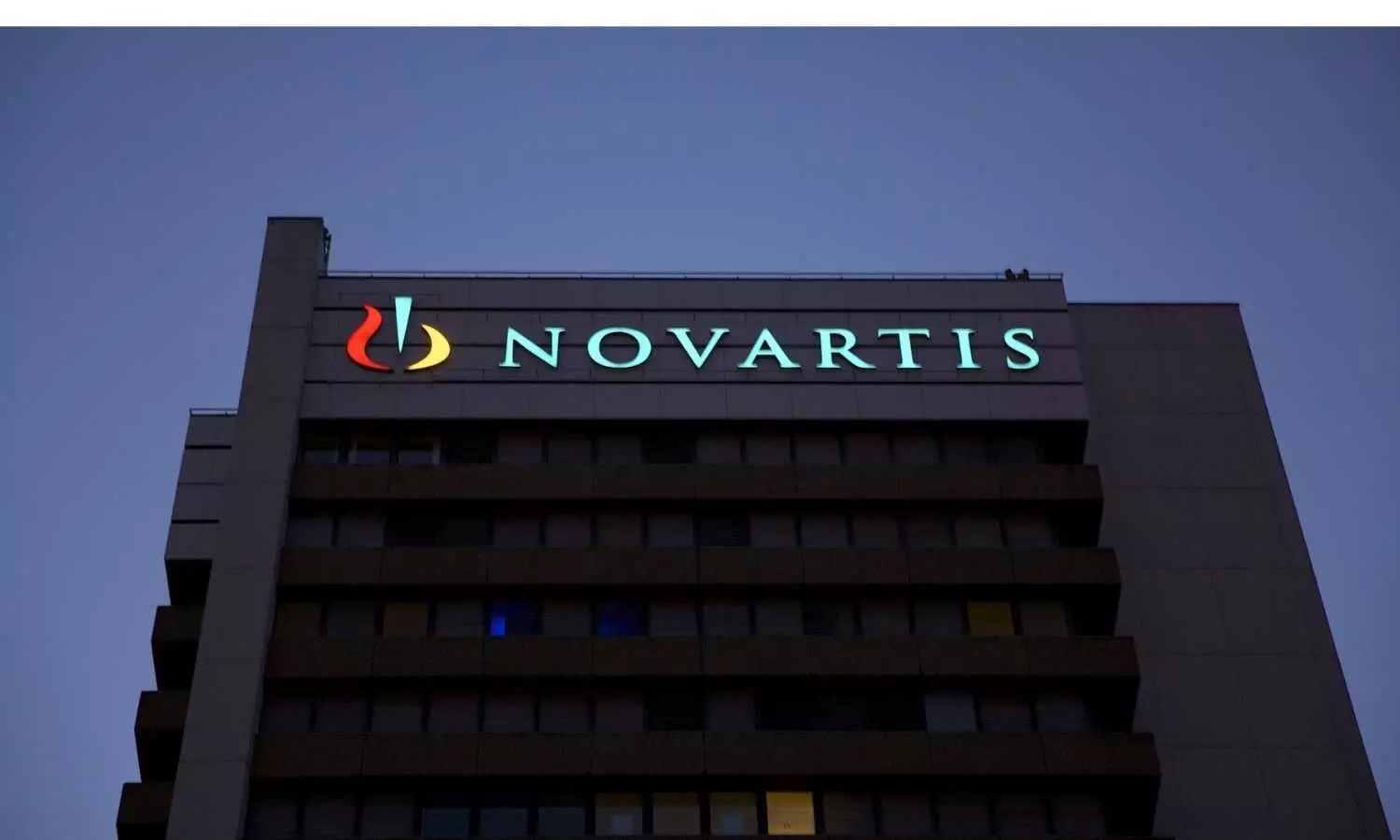Medical News, Health News Latest, Medical News Today - Medical Dialogues |
Turkey launches investigation into 19 pharma cos
Ankara: Turkey's competition authority said on Thursday it had launched an investigation into 19 pharmaceutical companies to determine whether they had violated competition law.
In a statement, the authority said it had decided on Nov. 9 to launch the probe into companies including AstraZeneca, Bayer, Glaxosmithkline, Johnson & Johnson, Bausch & Lomb, Sanofi and Pfizer. It provided no further details.
Asked about the matter, AstraZeneca said it does not comment on ongoing investigations as a matter of policy.
Glaxosmithkline, Sanofi and Germany's Merck KGaA all said they were fully cooperating with competition authorities in Turkey, but did not elaborate further.
In a statement, BASF said it was assessing the matter and was committed to high standards of legal compliance and business ethics.
AbbVie, Abdi Ibrahim, Bausch & Lomb, Bayer, Ilko, Johnson & Johnson, Liba, Menarini, Michael Page International, Panasonic, Pfizer, SIFI, and World Medicine could not immediately be reached for comment.
Read also: Misrepresentation of COVID vaccine efficacy: Texas Attorney General sues Pfizer
1 year 6 months ago
News,Industry,Pharma News,Latest Industry News
Medical News, Health News Latest, Medical News Today - Medical Dialogues |
Merck to acquire Caraway Therapeutics for up to USD 610 million
Rahway: Merck, known as MSD outside of the United States and Canada, and Caraway Therapeutics, Inc. have announced that the companies have entered into a definitive agreement under which Merck, through a subsidiary, will acquire Caraway Therapeutics for a total potential consideration of up to $610 million, including an undisclosed upfront payment as well as contingent milestone payments.
The upfront payment will be expensed by Merck in the fourth quarter of 2023 and included in non-GAAP results.
“Caraway’s multidisciplinary approach has yielded important progress in evaluating novel mechanisms of modulation of lysosomal function with potential for the treatment of progressive neurodegenerative diseases,” said George Addona, senior vice president, discovery, preclinical development and translational medicine, Merck Research Laboratories. “We look forward to applying our expertise to build upon this work with the goal of developing much needed disease-modifying therapies for these conditions.”
Caraway is a preclinical biopharmaceutical company pursuing innovative approaches for the treatment of genetically defined neurodegenerative and rare diseases. The company has built a pipeline of novel, small-molecule therapeutics for the treatment of genetically defined neurodegenerative and rare diseases.
“This important milestone is a testament to the hard work and dedication of the Caraway team and our mission to develop therapeutics with the potential to alter the progression of devasting neurodegenerative diseases and help patients,” said Martin D. Williams, chief executive officer, Caraway Therapeutics. “This acquisition leverages Merck’s industry-leading research and development capabilities to help further advance our discovery and preclinical programs. We thank and appreciate our investors, including SV Health Investors and its Dementia Discovery Fund, AbbVie Ventures, Amgen Ventures, Eisai Innovation and MRL Ventures Fund for their support.”
Under the terms of the agreement, Merck, through a subsidiary, will acquire all outstanding shares of Caraway with earnout milestones associated with the development of certain pipeline candidates. The Board of Directors of Caraway Therapeutics has approved the transaction. Merck, through its MRL Ventures Fund, has been a shareholder of Caraway Therapeutics since 2018.
1 year 6 months ago
News,Industry,Pharma News,Latest Industry News
Medical News, Health News Latest, Medical News Today - Medical Dialogues |
Boehringer Ingelheim, Zealand Pharma announce initiation of 3 phase III trials investigating Survodutide for obesity
Ingelheim: Boehringer Ingelheim and Zealand Pharma A/S have announced the initiation of three Phase III trials investigating survodutide (also known as BI 456906) for people living with overweight or obesity. The trial design builds upon learnings from Phase II, in which people living with overweight or obesity achieved up to 19 percent weight loss.
The Phase III trials will soon open for recruitment.
Additional Phase II data, presented at the 59th Annual Meeting of the European Association for the Study of Diabetes (EASD), demonstrated reductions in absolute waist circumference (up to 16.0 cm), absolute body weight (up to 19.5 kg) and absolute systolic and diastolic blood pressure (up to 8.6 mmHg and 4.8 mmHg, respectively) over 46 weeks.
“As the prevalence of the disease of obesity continues to increase, it is imperative that we develop additional innovative approaches to address this serious, chronic disease,” said Carel le Roux, M.D., Ph.D., Professor at University College in Dublin, Ireland, and Principal Investigator of the trial. “Survodutide has a novel mechanism of action with the potential to reduce appetite while increasing liver energy expenditure. The promising Phase II data give us reason to be hopeful about the potential of survodutide as a treatment for people living with the disease of obesity.”
SYNCHRONIZE-1 (NCT06066515) and SYNCHRONIZE-2 (NCT06066528), now listed on clinicaltrials.gov, are Phase III studies investigating survodutide in people with obesity (BMI ≥30 kg/m2) or overweight (BMI ≥27 kg/m2) with comorbidities, including dyslipidemia, hypertension and obstructive sleep apnea. SYNCHRONIZE-1 will enrol people without type 2 diabetes (A1C <6.5%) and SYNCHRONIZE-2 will enrol people with type 2 diabetes (A1C ≥6.5%, <10%).
For both studies, the primary endpoints are percent change in body weight at week 76 and the proportion of people who achieve body weight loss of 5% or more at week 76. Secondary endpoints include body weight reductions of at least 10%, 15% and 20% at week 76. A total of 600 participants will be enroled in each of the two studies, randomized to receive weekly subcutaneous injections of either survodutide, reaching a maximum dose of 3.6 mg or 6.0 mg for maintenance treatment, or placebo.
The third study, SYNCHRONIZE-CVOT, is a Phase III trial that will enrol people with overweight or obesity with cardiovascular disease, chronic kidney disease, or risk factors for cardiovascular disease. In SYNCHRONIZE-CVOT, the primary endpoint is the time to first occurrence of any one of five major adverse cardiac events (5P-MACE): death, non-fatal stroke, non-fatal myocardial infarction, ischemia-related coronary revascularization and heart failure events.
“By implementing the valuable insights gained from the Phase II study, we are confident in the accelerated development of survodutide,” said Carinne Brouillon, Head of Human Pharma, Boehringer Ingelheim. “Obesity is a chronic disease associated with serious health complications that affects hundreds of millions worldwide. With these trial initiations, we continue to build on our heritage of bringing differentiated and innovative treatments to address cardiovascular, renal, and metabolic diseases.”
“We are excited that survodutide will shortly enter Phase III trials through the global SYNCHRONIZE program for people living with overweight or obesity,” said David Kendall, MD, Chief Medical Officer of Zealand Pharma. “With novel peptide therapeutics like survodutide, we are targeting key metabolic pathways, and these therapies have the potential to address one of the most significant healthcare challenges in medicine today.”
Read also: Boehringer unveils 81 percent discounted biosimilar of AbbVie Humira
1 year 8 months ago
News,Industry,Pharma News,Latest Industry News
Medical News, Health News Latest, Medical News Today - Medical Dialogues |
Eli Lilly eczema drug lebrikizumab rejected by USFDA
Indianapolis: The U.S. Food and Drug Administration (FDA) has declined to approve Eli Lilly's drug to treat a type of skin disease due to certain findings during an inspection of a contract manufacturer, the drugmaker said on Monday.
The company said the agency did not raise concerns about the clinical trial data, safety or label for lebrikizumab, a monoclonal antibody for treatment of atopic dermatitis, or eczema.
The company said it will work with the manufacturer and the FDA to address the issues cited by the regulator in its so-called complete response letter.
A spokesperson for Lilly declined to provide more details on the findings of the FDA and the contract manufacturer.
Lebrikizumab was one of the five treatments that Eli Lilly was hoping to launch this year. The others include donanemab to treat Alzheimer's disease and tirzepatide for obesity.
It had sought approval for lebrikizumab based on three studies involving over 1,000 patients with moderate-to-severe eczema who were unable to control their symptoms with topical medicines or other systemic treatments.
Analysts, on average, estimate lebrikizumab to generate $1.64 billion in sales in 2026, according to LSEG data.
Atopic dermatitis has multiple treatments available, including those by AbbVie and Pfizer as well as some generic drugs like cetirizine
Read also: Eli Lilly settles whistleblower lawsuit over manufacturing problems
1 year 8 months ago
News,Industry,Pharma News,Latest Industry News
Medical News, Health News Latest, Medical News Today - Medical Dialogues |
Boehringer unveils 81 percent discounted biosimilar of AbbVie Humira
Germany's Boehringer Ingelheim has launched an unbranded version of its biosimilar of AbbVie's Humira with a list price 81% cheaper than the blockbuster rheumatoid arthritis drug.
The company in July launched a branded biosimilar, Cyltezo, priced at a 5% discount to Humira's current list price of $6,922 per month. Boehringer's close-copies of Humira are the only ones that can be substituted for the original without consulting the prescriber after being designated as interchangeable by the U.S. Food and Drug Administration.
Eight Humira biosimilars from companies including Novartis unit Sandoz and Amgen were launched in the U.S. this year. Several of those companies are also seeking interchangeability status with the FDA to better compete with Humira and Cyltezo.
Until recently, Humira was the world's biggest-selling prescription drug. It had sales of $21.2 billion in 2022.
Unlike easy to manufacture pills that can be copied and sold as generics at a huge discount once patents lapse, complex biologic medicines made from living cells cannot be exactly duplicated. Their close alternatives are called biosimilars.
Boehringer executive Stephen Pagnotta said the company wanted to make a lower-cost version of Cyltezo available to pharmacy benefit managers (PBMs) looking to add cheaper Humira biosimilars on their formulary, and for healthcare systems that act as both insurer and provider and typically do not seek after-market discounts.
"We felt the dual pricing approach could really help with payers and PBMs to ensure that biosimilars are available to as many patients as possible," he said.
Pagnotta said Boehringer was in negotiations with PBMs to put the unbranded version on their lists of covered medicines over the coming months.
UnitedHealth Group's Optum RX, one of the largest U.S. PBMs, said it has already committed to covering the lower-cost version of Cyltezo on its formulary.
Sandoz and Amgen also launched Humira biosimilars with two pricing tiers. Sandoz's Hyrimoz is sold at a 5% discount to Humira's price, while its unbranded version carries an 81% discount.
Healthcare experts have said the heavily discounted versions of Humira may not be made widely available because they are unlikely to appeal to PBMs like CVS Health's Caremark, Cigna Group's Express Scripts, and Optum RX, which together control 80% of the prescription drug market.
PBMs have come under increasing scrutiny for taking some of their fees as a percentage of the discounts they negotiate for drugs they cover, which some lawmakers have said can be an incentive for favoring higher-priced medicines in their negotiations.
Read also: Eli Lilly-Boehringer Ingelheim Jardiance gets USFDA approval for adults with chronic kidney disease
1 year 8 months ago
News,Industry,Pharma News,Latest Industry News
Medical News, Health News Latest, Medical News Today - Medical Dialogues |
6 medicines of Alembic Pharma received USFDA nod during Q2FY24
Mumbai: Alembic Pharmaceuticals Limited has announced that it has received US Food & Drug Administration (USFDA) approvals on six of its Abbreviated New Drug Application (ANDA) during Q2FY24.
The Company has received six final approvals that includes Chlorpromazine Hydrochloride Tablets USP, 10 mg, 25 mg, 50 mg, 100 mg, and 200 mg, Brimonidine Tartrate Ophthalmic Solution, 0.1%, Guanfacine Extended-Release Tablets USP, 1 mg, 2 mg, 3 mg, and 4 mg, Erythromycin Tablets USP, 250 mg and 500 mg, Brimonidine Tartrate and Timolol Maleate Ophthalmic Solution, 0.2%/0.5%, Chlordiazepoxide Hydrochloride and Clidinium Bromide Capsules USP, 5 mg/2.5 mg.
Chlorpromazine Hydrochloride Tablets USP, 10 mg, 25 mg, 50 mg, 100 mg, and 200 mg of Upsher-Smith Laboratories, LLC., is to manage the symptoms of psychotic disorders and treatment of schizophrenia, control nausea and vomiting, relief of restlessness and apprehension before surgery, acute intermittent porphyria, adjunct in the treatment of tetanus, to control the manifestations of the manic type of manic-depressive illness and for relief of intractable hiccups.
Brimonidine Tartrate Ophthalmic Solution, 0.1% with the brand name Alphagan P Ophthalmic Solution is from the innovator AbbVie, Inc. The medication is indicated to lower elevated intraocular pressure (IOP) in patients suffering with open-angle glaucoma or ocular hypertension.
Guanfacine Extended-Release Tablets USP, 1 mg, 2 mg, 3 mg, and 4 mg by Takeda Pharmaceuticals U.S.A., Inc. and with brand name Intuniv Extended-Release Tablets is indicated for individuals suffering from Attention Deficit Hyperactivity Disorder (ADHD). The tablets can be used alone or alongside stimulant medications.
Erythromycin Tablets USP, 250 mg and 500 mg by Azurity Pharmaceuticals, Inc. is for treatment of various infections caused by certain microorganisms.
Brimonidine Tartrate and Timolol Maleate Ophthalmic Solution, 0.2%/0.5% by AbbVie,Inc. is an alpha-adrenergic receptor agonist with a beta-adrenergic receptor inhibitor indicated for the reduction of elevated intraocular pressure (IOP) in patients with glaucoma or ocular hypertension who require adjunctive or replacement therapy due to inadequately controlled IOP. The brand name for the product is Combigan Ophthalmic Solution.
Chlordiazepoxide Hydrochloride and Clidinium Bromide Capsules USP, 5 mg/2.5 mg with the brand name Librax Capsules by Bausch Health US, LLC. are indicated to control emotional and physical factors that can cause gastrointestinal disorders. These capsules may also be used as additional treatments to help in peptic ulcer and in irritable bowel syndrome (irritable colon, spastic colon, mucous colitis) and acute enterocolitis.
Read also: Alembic Pharma successfully completes ANVISA, Brazil GMP audit for API-III facility at Karakhadi
1 year 8 months ago
News,Industry,Pharma News,Latest Industry News
Medical News, Health News Latest, Medical News Today - Medical Dialogues |
AbbVie blood cancer combo therapy fails in late-stage study
United States: AbbVie has said a late-stage study of its experimental combination therapy to treat a form of blood cancer failed to meaningfully increase the survival rate of patients without the disease worsening.
The combination of AbbVie's Venclyxto and a steroid dexamethasone was being tested in patients with a type of relapsed multiple myeloma who had received two or more prior treatments.
AbbVie's combination improved the median progression-free survival period to 9.9 months, compared with 5.8 months for a combination of Bristol-Myers Squibb's Pomalyst and dexamethasone, but the results were not statistically significant.
The company said 62% of patients treated with the combination therapy showed complete disappearance of tumors or reduction in tumor size, compared with 35% of patients treated with the Pomalyst-dexamethasone combination.
While the trial did not meet its primary endpoint, the company is planning to discuss the data with health authorities in the near future given the potentially favorable trends, Mariana Stirner, AbbVie's head of oncology and hematology therapeutic areas, said in the company statement.
Multiple myeloma, the second-most common blood cancer in the world, starts in plasma cells in bone marrow and ultimately disrupts the production of normal blood cells.
Venclyxto, which is approved in the U.S. to treat two other types of blood cancer, brought in revenues of $2.01 billion in 2022.
It is jointly commercialized by AbbVie and Roche unit Genentech in the U.S. and by AbbVie outside the country.
Read also: Abbvie executive Patrick Horber appointed as Novartis's President, International
1 year 8 months ago
News,Industry,Pharma News,Latest Industry News
Medical News, Health News Latest, Medical News Today - Medical Dialogues |
Novartis shareholders approve proposed 100 percent Spinoff of Sandoz
Basel: Novartis shareholders approved the proposed 100% Spin-off of Sandoz, the Generics and Biosimilars business of Novartis in an Extraordinary General Meeting.
Shareholders also approved an ordinary capital decrease of the share capital of Novartis AG in the amount of the share capital of Sandoz. This is to achieve tax neutrality of the Spin-off for Swiss withholding tax purposes and for income tax purposes for Swiss domiciled shareholders holding the shares as private assets.
This decision follows the announcement in August 2022 that Novartis intended to separate the Sandoz business to create an independent company by way of a 100% Spin-off.
"Novartis is confident that the Spin-off is in the best interests of shareholders, creating a European champion and a global leader in Generics and Biosimilars, and a more focused Novartis. The Spin-off is planned to occur on or around October 4, 2023," the company stated in a release.
The Spin-off will be implemented through the distribution of a dividend-in-kind of Sandoz shares to Novartis shareholders, and of Sandoz American Depositary Receipts (ADRs) to Novartis ADR holders.
Novartis shareholders and Novartis ADR holders will receive:
- 1 Sandoz Share for every 5 Novartis Shares
- 1 Sandoz ADR for every 5 Novartis ADRs
The Spin-off is expected to be tax neutral for Swiss tax and US federal income tax purposes.
“We welcome the decision by our shareholders to approve the Spin-off of our Generics and Biosimilars business, Sandoz, to create an independent company listed on the SIX Swiss Exchange”, said Joerg Reinhardt, Chair of the Board of Directors of Novartis. “With this step, both Sandoz and Novartis will be able to optimize management focus, allocate capital on business priorities, and be in a better position to create sustainable shareholder value in the future.”
"Sandoz is planned to be listed on the SIX Swiss Exchange, with an American Depositary Receipt (ADR) program in the US. The ADRs will not be listed on a US national securities exchange. In addition to Novartis shareholder approval, completion of the proposed Sandoz Spin-off is subject to satisfaction of certain conditions, including receipt of the necessary approvals for the listing of the Sandoz shares, no event outside of the control of Novartis preventing the Spin-off and no material adverse change. There can be no assurance regarding the ultimate timing of the proposed transaction or that the transaction will be completed," the release further stated.
Read also: Abbvie executive Patrick Horber appointed as Novartis's President, International
1 year 9 months ago
News,Industry,Pharma News,Latest Industry News
Medical News, Health News Latest, Medical News Today - Medical Dialogues |
Abbvie executive Patrick Horber appointed as Novartis's President, International
Basel: Novartis has announced that Marie-France Tschudin, President, Innovative Medicines International and Chief Commercial Officer, has decided to leave the company and will step down from the Executive Committee of Novartis (ECN), effective September 15, after nearly seven years of commercial leadership at Novartis.
Patrick Horber, M.D., currently Senior Vice President and President, Immunology at AbbVie has been appointed as President, International, effective later this year, reporting to Vas Narasimhan, M.D., CEO of Novartis. Dr. Horber will become a member of the ECN. Mukul Mehta, Chief Financial Officer, International, will lead the unit ad-interim until Dr. Horber assumes the role.
“I leave Novartis with a strong sense of pride and accomplishment in how we have delivered on our purpose,” Marie-France Tschudin said. “My deep esteem and gratitude go to the Novartis colleagues around the globe for their trust, hard work, and relentless efforts in getting patients the treatments they need, faster.”
Vas Narasimhan said: “I want to thank Marie-France for her extraordinary leadership during her nearly seven years at Novartis. She has been integral to reimagining our commercial model and the way we deliver innovative medicines to patients around the world. Marie-France has led her teams to remarkable growth. The impact she has had on our business, on our people, and on patients around the world will be long-lasting. I wish her the very best as she pursues her next chapter.”
“I look forward to welcoming Patrick to Novartis. He is a proven leader with deep experience enabling commercial performance on a global scale, and I am confident he will catalyze our growth journey as Novartis enters our next chapter as a fully focused innovative medicines company.”
Patrick Horber said, "As a Swiss medical doctor, it is a privilege to join Novartis—a pillar of global biomedical innovation and scientific progress. I look forward to working alongside our teams to reimagine medicine for and with patients around the globe.”
Dr. Horber holds a M.D. from the University of Zurich. He is a native of Switzerland with over 20 years of experience in the biopharma sector and a deep understanding of the global pharmaceutical market. In his latest role as Senior Vice President and President, Immunology, at AbbVie, Dr. Horber was responsible for their Immunology Business Unit, leading the Global Strategy and U.S. execution including Global Commercial Development. Prior to this role he has served in a variety of leadership and general management positions in the US and Europe.
Read also: Novartis concludes acquisition of Chinook Therapeutics
1 year 9 months ago
News,Industry,Pharma News,Latest Industry News
Medical News, Health News Latest, Medical News Today - Medical Dialogues |
AbbVie gets European Commission nod for Aquipta for prophylaxis of migraine in adults
North Chicago: AbbVie has announced that the European Commission has approved AQUIPTA (atogepant) for the prophylaxis of migraine in adults who have four or more migraine days per month.
The approval makes AQUIPTA the first and only once-daily oral calcitonin gene-related peptide (CGRP) receptor antagonist (gepant) treatment in the European Union for the preventive treatment of both chronic and episodic migraine.
Chronic migraine is characterized by 15 or more headache days per month and at least eight migraine days, while episodic migraine refers to people with migraine who have less than 15 headache days per month. People living with migraine may experience frequent disabling attacks that prevent them from performing daily activities and can significantly affect their quality of life. This debilitating disease also imposes both a social and financial burden for people living with migraine and health care systems. In Europe, migraine is estimated to cost the economy €50 billion annually due to reduced productivity and workdays lost.
"The European Commission approval of AQUIPTA is a significant milestone for people suffering from four or more migraine days per month as it provides a once-daily treatment option that can reduce the number of migraine days and the associated pain they experience," said Roopal Thakkar, SVP, Development and Regulatory Affairs, Chief Medical Officer, AbbVie. "With this approval, AbbVie can help meet additional migraine patient needs through our enhanced portfolio of treatment options across migraine frequencies, including episodic and chronic migraine."
The approval of AQUIPTA is supported by data from two pivotal Phase 3 studies, PROGRESS and ADVANCE, which evaluated 60 mg once-daily (QD) AQUIPTA in adult patients with chronic migraine and episodic migraine, respectively. Both studies met their primary endpoint of a statistically significant reduction in mean monthly migraine days (MMDs), compared to placebo across the 12-week treatment period. Additionally, statistically significant improvements were seen in all secondary endpoints with AQUIPTA 60 mg QD, with a key secondary endpoint measuring the proportion of patients that achieved at least a 50% reduction in MMDs across the 12-week treatment period.
In the PROGRESS study, the changes from baseline in MMDs was a reduction of 6.8 days for AQUIPTA 60 mg QD and a reduction of 5.1 days for placebo (p=0.0024). The study demonstrated that 40% of patients treated with AQUIPTA 60 mg QD achieved at least a 50% reduction in MMDs, compared to 27% of patients in the placebo arm (p=0.0024).5 In the ADVANCE study, the changes from baseline in MMDs was a reduction of 4.1 days for AQUIPTA 60 mg QD and a reduction of 2.5 days for placebo (p≤0.001). The study also demonstrated that 59% of patients treated with AQUIPTA 60 mg QD achieved at least a 50% reduction in MMDs, compared to 29% of patients in the placebo arm (p≤0.0001).6
"Migraine is a neurological disease that causes recurrent pain and other migraine-associated symptoms, with attacks that can last several hours to days, leading to missed life opportunities," said Prof. Patricia Pozo-Rosich, MD, PhD, Head of Neurology Section, Vall d'Hebron Hospital and Institute of Research, Spain. "The pivotal Phase 3 studies demonstrated AQUIPTA provides significant and sustained reduction of mean monthly migraine days. This allows people to experience relief with a simple to take once-daily tablet, including those who have had an insufficient response to prior preventative migraine treatments."
Atogepant is approved in the United States for both chronic and episodic migraine and in Canada for episodic migraine under the brand name QULIPTA®.
Read also: Lupin receives over Rs 205 crore from AbbVie for meeting key product development milestone
1 year 9 months ago
News,Industry,Pharma News,Latest Industry News


